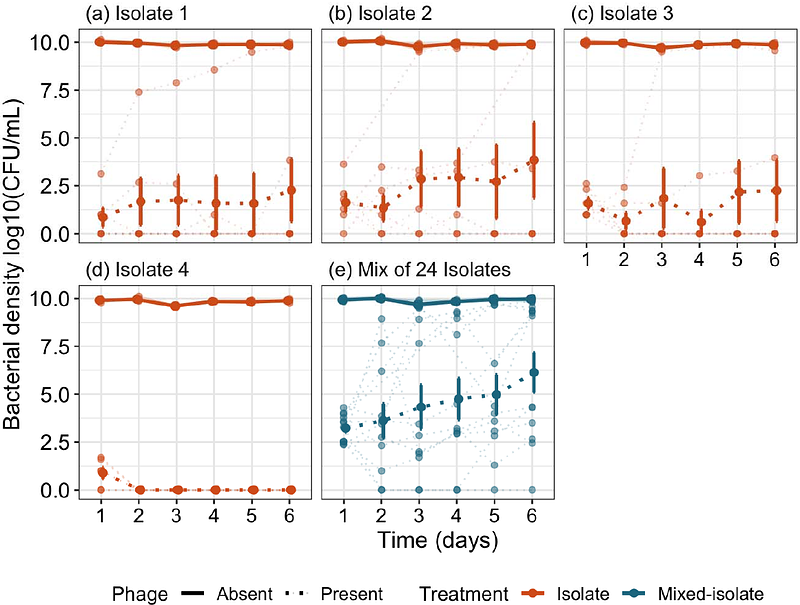Predicting clinical phage therapy outcomes in vitro: results using mixed versus single isolates from an MRSA case study

Predicting clinical phage therapy outcomes in vitro: results using mixed versus single isolates from an MRSA case study
Castledine, M.; Esom, C.; Van Nieuwenhuyse, B.; Djebara, S.; Merabishvili, M.; Pirnay, J.-P.; Buckling, A.
AbstractAims In phage therapy case studies, 1-3 bacteria isolates are typically tested against phages (phagogram). However, as bacteria populations differ in their susceptibility to phages and antibiotics, the strains selected may not represent how the infecting population will respond to treatment. Our aim was to assess whether the effects of phage on single or a mix of isolates in vitro show more comparable results to that observed during a clinical case study. Methods and Results The patient presented with a methicillin resistant Staphylococcus aureus infection (MRSA). In this previously published case study, phage therapy alongside antibiotics rapidly cleared blood cultures of bacteria while localised regions, including the lungs, took longer to clear of bacteria. In this follow-up study, mixed isolates were more likely to persist than single isolates in vitro, more closely representing the lung, but not blood, infections. These results may reflect the different degrees of genetic diversity of the infecting bacteria in these sites. Conclusions For this patient, phage therapy predictions were significantly affected by whether we used mixed versus single isolates, but the predictive precision depended on the site of in vivo infection. Impact statement This work is important for informing whether phage therapy design protocols give accurate insights into clinical outcomes.